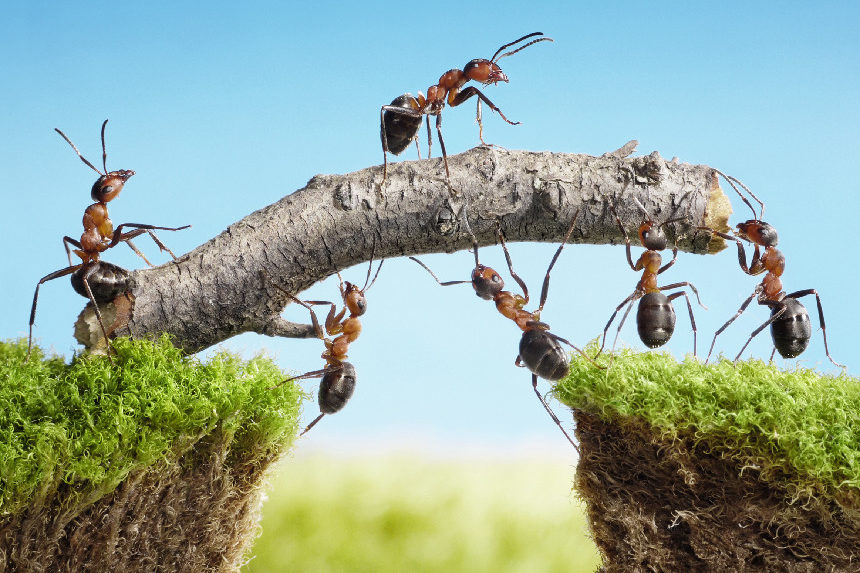“Your Health Checkup” is our online column by Dr. Douglas Zipes, an internationally acclaimed cardiologist, professor, author, inventor, and authority on pacing and electrophysiology. Dr. Zipes is also a contributor to The Saturday Evening Post print magazine. Subscribe to receive thoughtful articles, new fiction, health and wellness advice, and gems from our archive.
Order Dr. Zipes’ books, Ari’s Spoon, a new novel, as well as Bear’s Promise and Damn the Naysayers, A Doctor’s Memoir. Check out his website at dougzipes.com.
My wife and I just received our second COVID booster vaccination. Although not officially approved, that will likely happen in the coming weeks. Since we have travel soon, I wanted to be sure we were prepared to confront airports, airplanes, and taxis, especially with a new variant circulating.
I have written often about the benefits of vaccination. Anti-vaxxers continue to amaze me; frequently, when seriously ill and near death, they confront their own bad decision and lament not getting vaccinated. For those of you still unvaccinated, or not fully vaccinated, I urge you to get vaccinated immediately. Hopefully we’re nearing the end of this pandemic and now is not the time to ease off. My constant worry, and that of many experts, is that the next viral variant will be more lethal and resistant to the present vaccines. Were that to occur, we’d be back at square one with mass infections and widespread deaths. Don’t let it happen! Protect yourself as well as the community.
Ants teach us that the health of the community is very important. They are good neighbors, extremely altruistic, and do their best to protect the queen and the colony.
For example, if an ant comes into contact with a fungal pathogen, it has only about 24 hours to eliminate the spores from the outside of its body. After that, the spores will begin to grow, invade, and start multiplying inside the ant. The ant tries to remove the fungal spores before it enters the colony to avoid infecting others. A healthy ant will help groom those that have been contaminated to physically remove the spores. If all fails, and the ant approaches death, it will distance itself as far from the colony as it can to isolate in an area where it has no chance of infecting others.
Social support and concern for others, including avoiding spread of infection with social distancing, help the ant community. We can learn from that. They can also teach us about cancer.
In southern Florida we are vulnerable to an onslaught of insects, from mosquitos to roaches to ants. What fascinates me is the ants’ uncanny ability to detect the merest whiff of food and share that knowledge with others in the colony. Within hours, an army of recruits carries off a tiny cookie crumb left on the counter.
Recently, scientists have capitalized on the ants’ olfactory ability to detect odors by training them to detect cancer. Cancer cells have an altered metabolism that can produce unique patterns of volatile organic compounds that can be used as cancer biomarkers to which dogs — and now ants — can be taught to respond.
Scientists have shown that ants needed only a few training trials to learn, memorize, and reliably detect the odor of human cancer cells emitting these organic compounds. They were trained more easily than dogs.
The species of F. fusca worker ants quickly learned to associate an olfactory stimulus with a food reward, as well as to discriminate this sample against a new one, and retain this information for several days. Training used classical conditioning, i.e., the association of an unconditioned stimulus (a reward consisting of sugar solution) with the odor of cancer cells.
Their findings suggest that using ants as living tools to detect biomarkers of human cancer is feasible, fast, and less laborious than using other animals. They can teach us where cancer exists.
There is a wonderful TV documentary called My Octopus Teacher. Maybe we should have another one called My Ant Teacher.
Featured image: Shutterstock
Become a Saturday Evening Post member and enjoy unlimited access. Subscribe now




Comments
I’m speechless, Dr. Zipes. Ants——-superior to dogs in detecting cancer. This is astonishing, to say the least. Thank you for the links pertaining to it.
Having gotten my first booster shot on November 22nd, I was thinking now might be too soon, but realize it’s not. The first 2 Pfizer shots are from March & April ’21. I think we’re going to be in a perpetual cycle of variants from here on out with another, then another, and another, etc. Not unlike America’s perpetual undeclared wars.
Those who choose to remain unvaccinated may be risking death, unfortunately. A certain percentage of Americans never learn their lessons regarding this as we’ve seen over and over again with super-spreader holidays and events. I hope going back to square one does not happen. Cascading downward into the depths of such dark shadows again does seem almost inevitable though. Only time will tell if people have the intelligence of an ant.